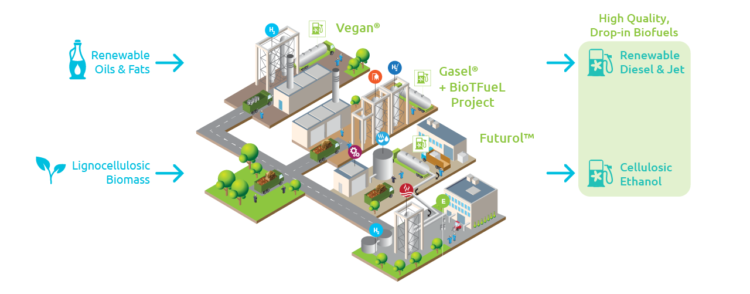Sep 21 2018
3 min read

Among the different options considered to reduce environmental impacts of transport, biofuels are key. Referring to the Paris Agreement, the use of biofuels is the number one strategy that countries are planning to implement in order to comply with transport-related commitments.
Advanced biofuels technologies have been developed to provide more sustainable alternative fuels for passenger cars, trucks, ships and airplanes by using non-edible feedstocks and delivering better GHG emission savings compared to conventional biofuels. According to the International Energy Agency, the swift commercialization of these technologies will be crucial to achieve expected CO2 emissions reduction, a twenty-five fold scale-up in production being necessary in the coming years to successfully limit the average global temperature increase in 2100 to 2°C1.
Such growth will require clear, stable and long-term policy frameworks to boost and secure investments. Recent policy developments have been heading in this direction with new programs or updates incentivizing advanced biofuels for the 2020-2030 period. In Europe for instance, an agreement on the recast of the Renewable Energy Directive (RED II) was found in June, including specific and ambitious targets for advanced biofuels by 2030. Other world regions also strengthened their support to advanced biofuels such as India or China.
In addition to specific mandates, advanced technologies are receiving a growing interest because of the increased sustainability standards in low carbon fuels policies as well as the need for sustainable alternative fuels in the aviation industry to ensure carbon-neutral growth from 20202.
Axens’ pioneering efforts in advanced biofuels development can help refiners meet these new challenges lying ahead. Different technologies are already available to produce bio-based fuels from different feedstocks for different applications (Vegan®, Futurol™). Other innovative solutions will supplement Axens portfolio in the near future such as a complete process chain for the production of second generation biodiesel and biokerosene from numerous types of lignocellulosic biomass (BioTfueL project).

Vegan® technology is a flexible solution for producing renewable diesel and jet through the hydrotreatment of a wide range of lipids: all vegetable oils and animal fats, including used cooking oil and tall oil.
This technology allows producers to effectively address today’s environmental concerns and secure energy diversification with ‘drop-in’ premium quality products.

Futurol™ technologies aim at producing second generation (2G) bio-ethanol from various biomasses suitable for fuel.
The process route includes a feed pretreatment step, followed by enzymatic hydrolysis and fermentation based on biocatalysts.

| Vegan® | Futurol™ Technology |
|
|